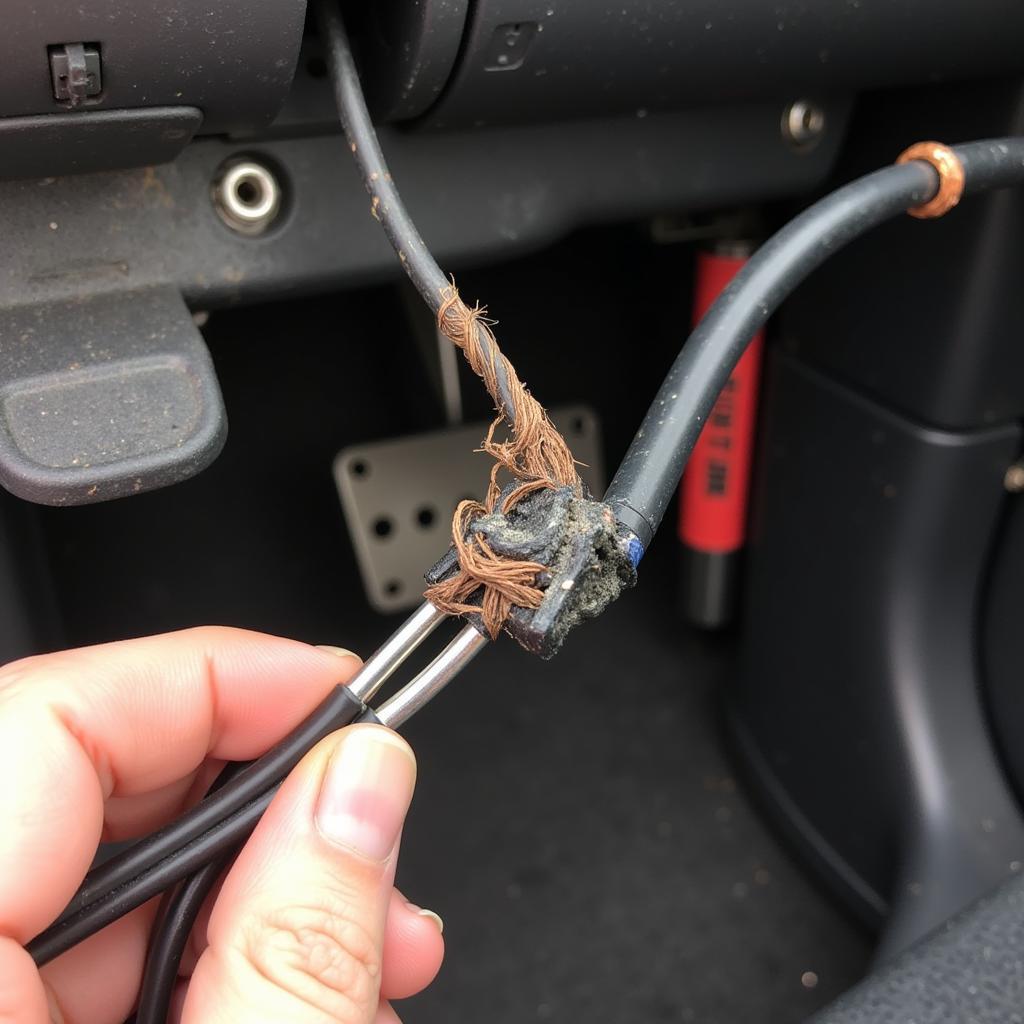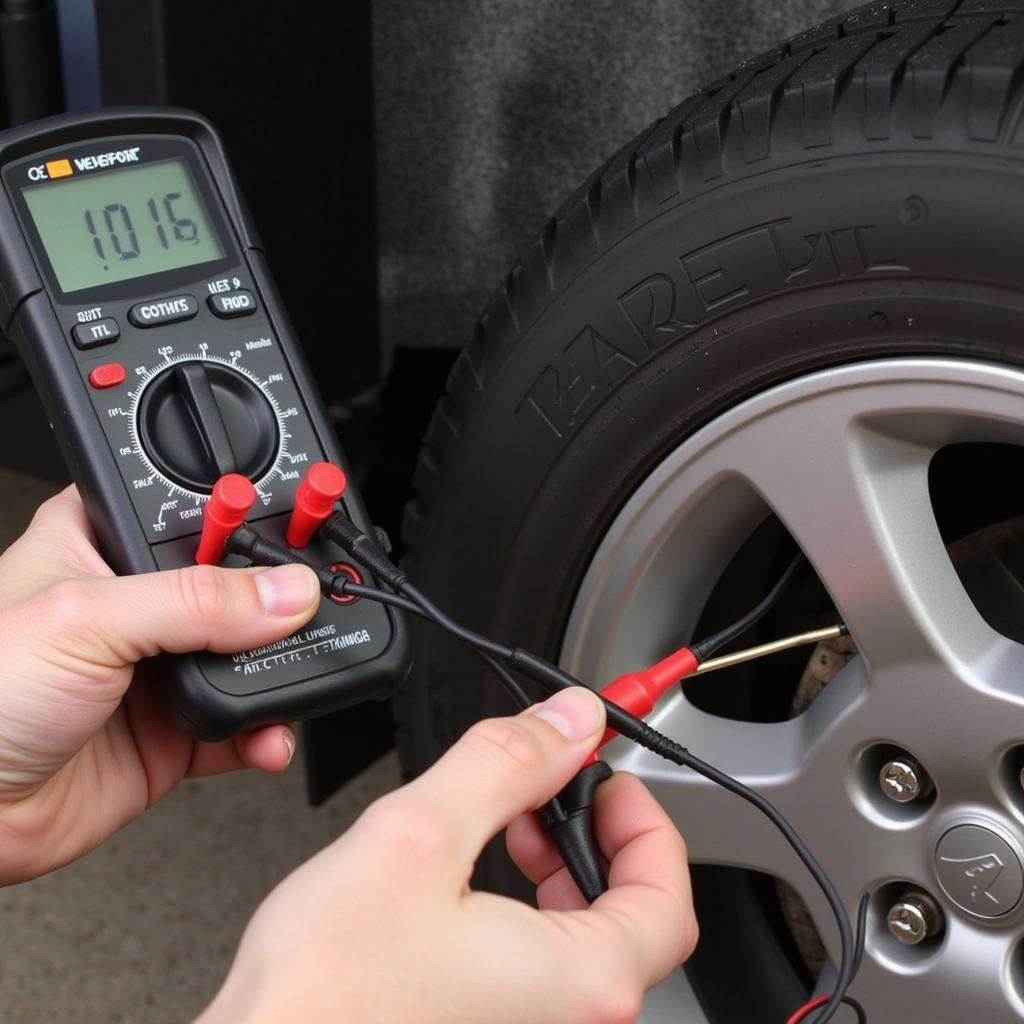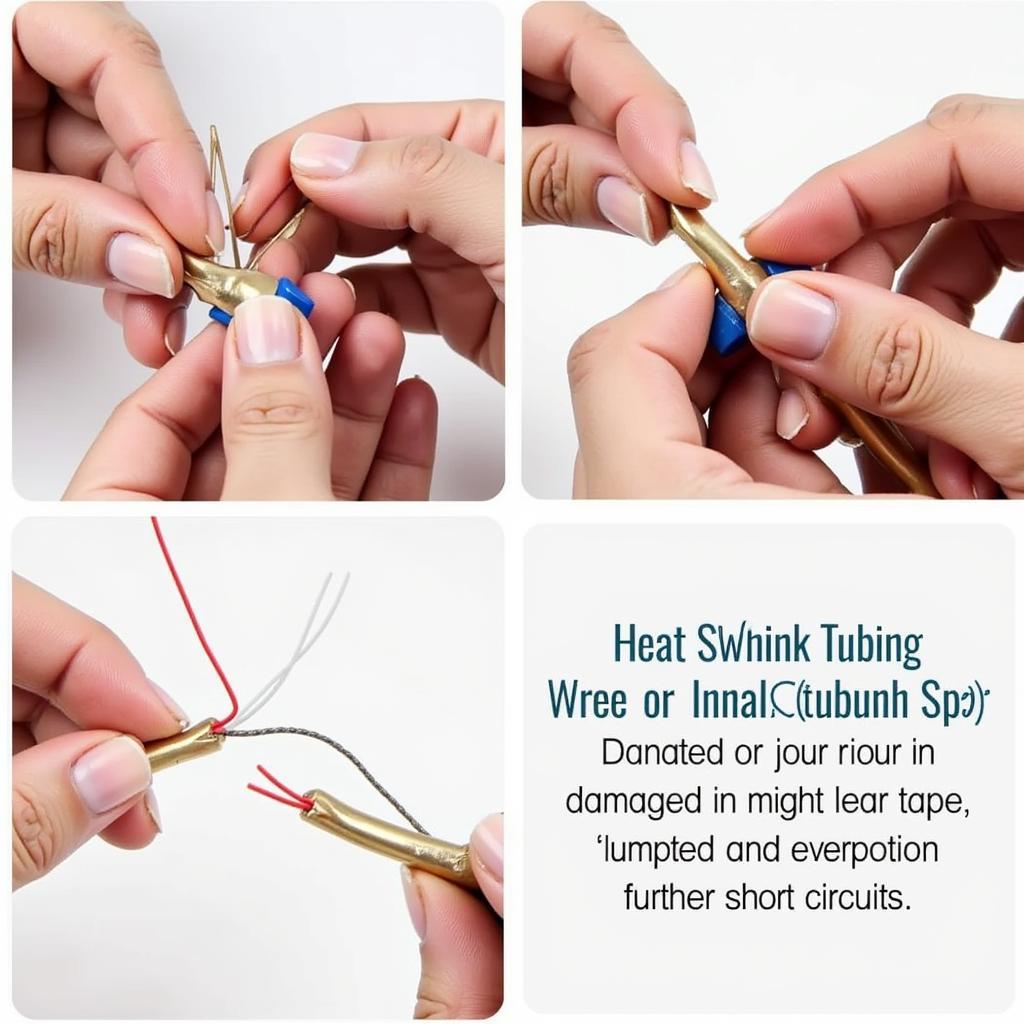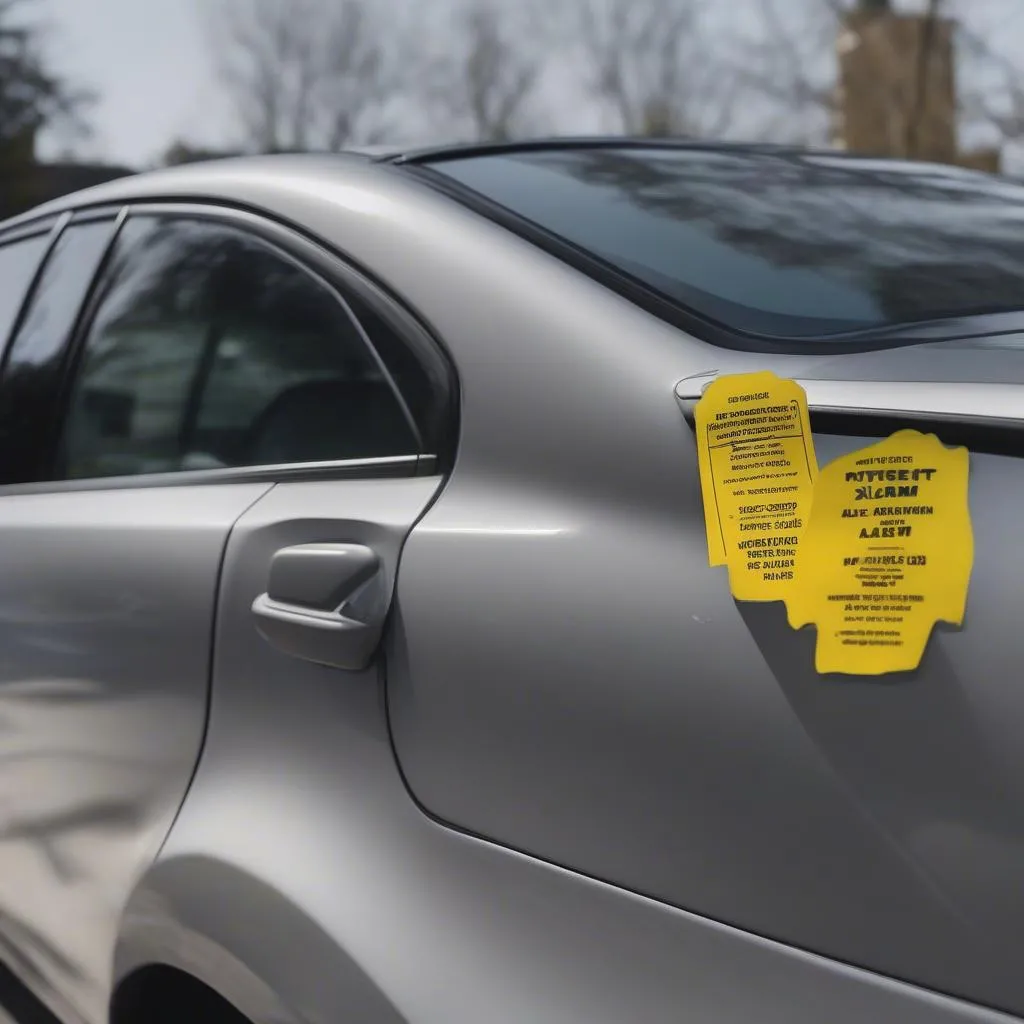A brake warning lamp ground short can be a frustrating issue, leaving you wondering what’s wrong with your braking system. This article dives deep into the causes, symptoms, and solutions for a brake warning lamp ground short, empowering you to diagnose and potentially fix the problem yourself. We’ll cover everything from basic checks to more advanced diagnostic techniques, ensuring you have a comprehensive understanding of this common automotive electrical problem.
The brake warning light on your dashboard is a crucial safety feature, alerting you to potential problems within your braking system. When this light illuminates due to a ground short, it signals an electrical fault rather than necessarily a mechanical brake issue. Understanding this distinction is the first step to effectively troubleshooting the problem. For example, a ground short can sometimes be caused by a simple wiring issue, as opposed to a failing brake component. This article will help you identify the root cause and get your brakes back in optimal condition. You might even be able to save yourself a trip to the mechanic! More information can be found on brake warning lamp ground short on a 7.3.
Understanding the Brake Warning Lamp Ground Short
A ground short occurs when the wire connected to the ground circuit makes unintended contact with another wire or a metal part of the vehicle. This unwanted connection bypasses the normal electrical pathway, causing the brake warning lamp to illuminate even when the brakes are functioning correctly.
What does this mean for you? It means your brake warning light could be on even if your brake fluid is full, your brake pads are good, and your braking system is mechanically sound. This can be confusing, but knowing the difference between a mechanical and electrical issue can save you time and money. Learn more about specific issues like a c1226 brake warning lamp ground short.
Common Causes of a Brake Warning Lamp Ground Short
- Damaged Wiring: Over time, wires can become frayed or chafed, exposing the internal conductors and creating a path for a ground short. This is often caused by vibration, rubbing against other components, or exposure to harsh environmental conditions.
- Faulty Connectors: Corrosion or damage to electrical connectors can also lead to a ground short. These connectors are essential for maintaining a proper electrical pathway, and a faulty connection can disrupt the circuit.
- Malfunctioning Components: A malfunctioning brake light switch, combination switch, or other related component can cause a ground short. These components are designed to control the flow of electricity within the braking system, and a fault can lead to unexpected grounding issues.
 Damaged Wiring Causing a Ground Short
Damaged Wiring Causing a Ground Short
Diagnosing a Brake Warning Lamp Ground Short
Diagnosing a brake warning lamp ground short requires a systematic approach. Here are some steps you can take:
- Visual Inspection: Begin by visually inspecting the wiring and connectors around the brake pedal, master cylinder, and combination switch. Look for any signs of damage, corrosion, or loose connections.
- Check Fuses: A blown fuse can sometimes mimic a ground short. Locate the fuse related to the brake warning lamp and check if it’s blown. If so, replace it with a new fuse of the correct amperage.
- Use a Multimeter: A multimeter can be used to test the continuity of the ground circuit. This involves checking the resistance between the ground wire and a known good ground point on the vehicle. A low resistance reading indicates a ground short. Further investigation is then required to locate the exact point of the short.
 Using a Multimeter to Diagnose a Ground Short
Using a Multimeter to Diagnose a Ground Short
“A visual inspection is often the quickest way to identify obvious issues like damaged wiring or loose connections,” says John Smith, Senior Automotive Electrical Technician at AutoTech Solutions. “However, don’t rely solely on visual inspection. Using a multimeter is crucial for confirming a ground short.”
Troubleshooting Specific Scenarios
Sometimes, the brake warning lamp ground short can be related to a specific vehicle or issue. For more information on specific scenarios, you can check out brake light warning 2000 volvo s70.
Fixing a Brake Warning Lamp Ground Short
Once you’ve diagnosed the cause of the ground short, you can take steps to fix the problem. This may involve repairing damaged wiring, replacing faulty connectors, or replacing malfunctioning components. If you’re not comfortable working with electrical systems, it’s best to consult a qualified mechanic.
“Addressing the root cause is essential,” adds Maria Garcia, Lead Diagnostic Specialist at CarCare Diagnostics. “Simply replacing a fuse without fixing the underlying issue will likely result in the fuse blowing again.” You can also find more specific troubleshooting tips for issues like brake warning lamp ground short 2000 chevy silverado.
 Repairing Damaged Wiring to Fix a Ground Short
Repairing Damaged Wiring to Fix a Ground Short
Conclusion
A brake warning lamp ground short can be a tricky issue to diagnose and fix. By understanding the underlying causes and following a systematic approach, you can effectively troubleshoot the problem and ensure your braking system is functioning correctly. Remember, if you’re unsure about any step, it’s always best to consult a qualified automotive technician. Addressing a brake warning lamp ground short promptly will maintain the safety and reliability of your vehicle. If your brake warning light is dimly lit, it may indicate a different issue and you should investigate further.
FAQ
- Can I drive my car with a brake warning lamp ground short? While the car may be drivable, it’s not recommended. The light being on may mask other genuine brake problems.
- Is a brake warning lamp ground short expensive to fix? The cost varies depending on the cause and the required repairs. It can range from a simple fuse replacement to more extensive wiring repairs.
- What tools do I need to diagnose a brake warning lamp ground short? A multimeter is the most essential tool. You may also need some basic hand tools for inspecting wiring and connectors.
- Can a bad brake light switch cause a ground short? Yes, a faulty brake light switch can certainly cause a ground short.
- How often should I check my brake system for electrical issues? It’s a good practice to visually inspect your brake wiring and connectors during regular maintenance checks.
- What is the difference between a ground short and an open circuit? A ground short is an unintended connection to ground, while an open circuit is a break in the electrical pathway.
- Can a brake warning lamp ground short affect other systems in the car? In rare cases, a severe ground short can affect other electrical systems in the vehicle.

